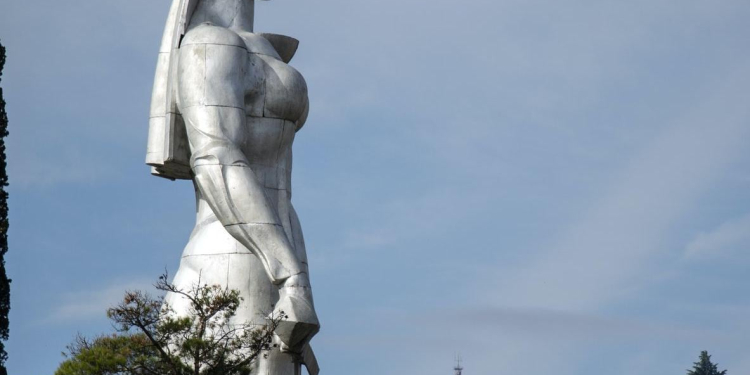Resume: In the first quarter of 2023, tourism revenue amounted to USD 795 million whilst in the same period of 2024, it was USD 808 million, a 1.5% increase.
The 1.5% growth is insignificant and can be considered zero growth when taking inflation into account. In the same period, the number of visitors increased by 8.6% and the number of tourists among them increased by 11%. The latest information on transactions made with foreign bank cards dates back to December 2023. The 36% growth does not align with the first quarter of 2019 either, ruling out the possibility that the minister unintentionally mixed up the data.
Despite the numerically correct data, FactCheck rated Levan Davitashvili’s statement as HALF TRUE due to the characterisation of practically zero growth as a 36% increase.
Analysis: On 17 June, at a briefing held after the government meeting, the Minister of Economy and Sustainable Development, Levan Davitashvili, stated while discussing tourism (from 1:23): “The revenue [from tourism] is very high, over 800 million in the first quarter from the tourism sector, which is also a record high, exceeding the 2023 figures by 36%.”
In the first quarter of 2024, 1.3 million international travellers visited Georgia of which 938,000 were tourists. Tourism revenue amounted to USD 808 million which is only 1.5% higher than the same period last year, not 36%.
Signs of tourism recovery appeared as early as 2021 during the pandemic and the pace of recovery accelerated in 2022 and 2023. However, the number of tourists did not reach the 2019 level.
The situation is different in terms of tourism revenue. In 2022, the nominal revenue from the sector exceeded the pre-pandemic level and real revenue also surpassed it in 2023.
In the first quarter of 2023, tourism revenue doubled as compared to the same period in the previous year. The reason for such rapid growth was the fact that some COVID-19 regulations were still in place at the beginning of 2022. In the second quarter, the growth rate decreased to 35%. It dropped to 5% in the third quarter and a 13% decline was recorded in the fourth quarter.
Chart 1: Revenue from Tourism (USD Million)
Source: National Bank of Georgia
in the first quarter of this year can be considered zero growth when taking inflation into account.
The 36% growth stated by the Minister of Economy and Sustainable Development is not true and it is difficult to determine what other parameter Levan Davitashvili might have meant, if any.
If we compare to the pre-pandemic period, then the growth rate would be 40%. The latest information on transactions made with foreign bank cards dates back to December 2023. Information on the first quarter of 2024 is not available neither by sector (transport, accommodation facilities, catering).
Further, 36% does not fit the quantitative increase in tourists either. In the first quarter of 2024, the number of international travellers increased by 7.6% as compared to the same period last year, including an 8.6% increase in visitors and an 11% increase in tourists. If we compare to the first quarter of 2019, we get a 6.4% increase in the number of tourists. In terms of international travellers and visitors, there is still a 20% and 13% decrease, respectively.
Based on past experience, the first quarter is the least busy in terms of tourism. In 2011-2019, 17% of revenue came in the first quarter. The busiest third quarter accounted for 37%.
Some representatives of the tourism sector claim that some bookings were cancelled. They attribute this fact to the “Russian law” (the “Russian law” was initiated on 3 April, passed in the first reading on 17 April and in the third reading on 14 May and the president’s veto was overridden by MPs on 28 May). Individual statements are only one part of the picture and without statistical information, any numerical reasoning would be unjustified. It is possible that the “Russian law” did reduce the number of potential tourists but the growth rate was still maintained. For example, if the number of tourists was supposed to increase by 10% in other circumstances, the increase turned out to be 8% and revenues increased by 7% instead of 12%. Statistical information for April-June will be published in the third quarter.
Whatever growth is recorded in the second or third quarter, it will not change the fact that in the first quarter, revenue growth was a minimal 1.5%, not 36%. Despite the numerically correct absolute data, FactCheck rated Levan Davitashvili’s statement as HALF TRUE due to the characterisation of practically zero growth as a 36% increase.
Topic: Economy
Author: Giorgi Elizbarashvili































Discussion about this post